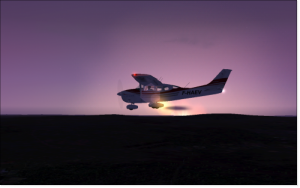Cost-shared flights in France: applicable rules
 Services for cost-shared flights offered through Internet platforms tends to develop as did carpooling services.
Services for cost-shared flights offered through Internet platforms tends to develop as did carpooling services.
In France, the French civil aviation authority (DGAC) was concerned about this new type of service.
The position of the DGAC
A working group headed by the DGAC concluded on 16 January 2016 that cost-shared flights should be considered as a public transport of passengers. The DGAC required then that cost-shared flights platforms obtain an AOC to offer such services…
On the other hand, the EASA confirmed that cost-shared flights fall within the scope of non-commercial operations subject to the EC regulation n°965/2012 of 5 October 2012 as amended. Thus, cost-shared flights are considered as non-commercial flights in Europe.
It results from Article 6 4bis a) of the above regulation that cost-shared flights operated by private persons can be operated pursuant to Annex VII of said regulation by way of derogation from Article 5. Two requirements should be met in such a case:
– the direct cost is shared by all the occupants of the aircraft, pilot included, and
– the number of persons sharing the direct costs is limited to six.
Finally, the DGAC decided to adopt a more flexible position in a decision dated 22nd August 2016 (published in JORF n°0196 du 24 août 2016) and based on Article 14 of the EC regulation n°216/2008.
However, the DAGC provides in its decision strict rules to operate cost-shared flights, in addition to those resulting from the amended regulation n°965/2012, as follows:
Operations of cost-shared flights are restricted to day visual flights.
Further, the DGAC distinguishes two types of flights:
- Circular flights of less than 30 minutes duration for which the aircraft remains within 40 kilometers from the departure aerodrome; and
- Other flights.
For the first type of flights, the private pilot should have a PPL licence with 200 hours experience, with 25 hours during the last 12 months.
For the second type of flights, the pilot should detain in addition the above licence with instrument rating or instructor qualification. In this case, the aircraft should also have flight and navigational instruments and associated equipment as set out either in section NCO.IDE.A.120 (aircraft) or NCO.IDE.H.120 (helicopter).
In addition, the platforms offering cost-shared flights services should make it clear that rules on public transport are not applicable.
Cost-shared flights in Europe and French perspective
Most European member States followed the position of the EASA and do not require further conditions to operate cost-shared flights. This is the case in the UK. The CAA published guidance and information notice relating to cost-shared flights, introducing with the UK the recent amendments to the European regulation n°965/2012.
The DGAC decided to adopt additional rules for all cost-shared flight arriving at or departing from a French aerodrome.
Such a position would certainly be considered as restrictive for cost-shared flights operated from or to another member State. At the moment, pilots from other member States have to comply with the new French rules to fly to a French aerodrome…
The EASA will thus have to take position in respect of these French rules, pursuant to Article 14 of the EC regulation n°216/2008.
French Internet platforms now expect that the flexible position of the EASA will be preferred to the French rules!
Liability in case of accident
Even if the cost-shares flights services are developed on a similar economic model as carpooling, the liability regime under French law differs significantly.
In case of accident, the passengers of a vehicle are protected by the « Law Badinter » which provides strict liability rules, special protection for passengers who are victims of an accident, compulsory insurance, etc. Passengers may also be compensated by the FGAO (the French mandatory third party liability insurance guarantee fund).
The situation is different for non-commercial flights under French law.
Article L.6421-4 of the transport code provides a special liability regime. In case of accident, it will be necessary to demonstrate a fault committed by the pilot. Indeed, cost-shared flights can be considered as a gratuitous flight for this purpose. However, in practice it is difficult to prove such a fault.
The insurance of the pilot may be of assistance if its terms and conditions allow compensation in such a case. Otherwise the CIVI (another French guarantee fund for criminal offences) may offer compensation, but only if a criminal offence is established.
